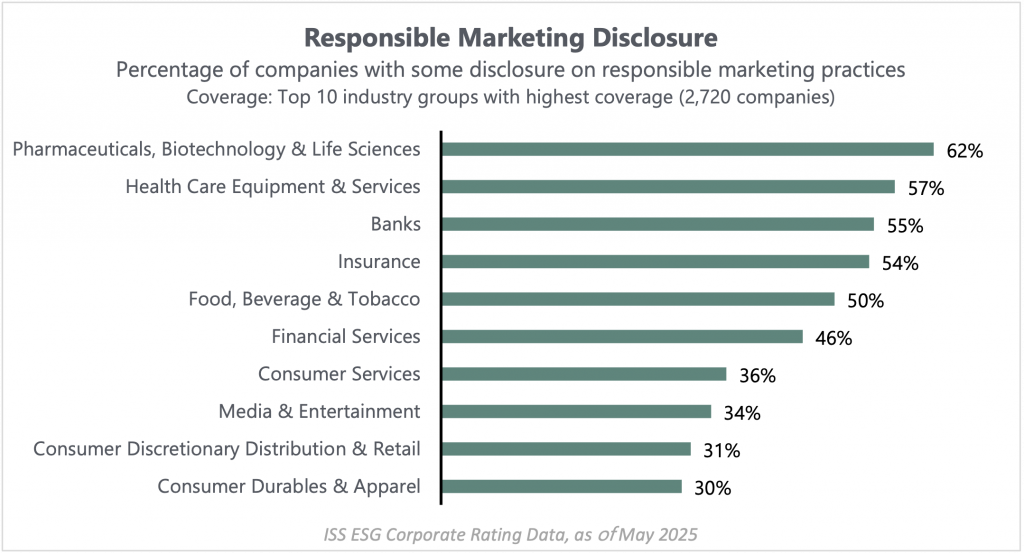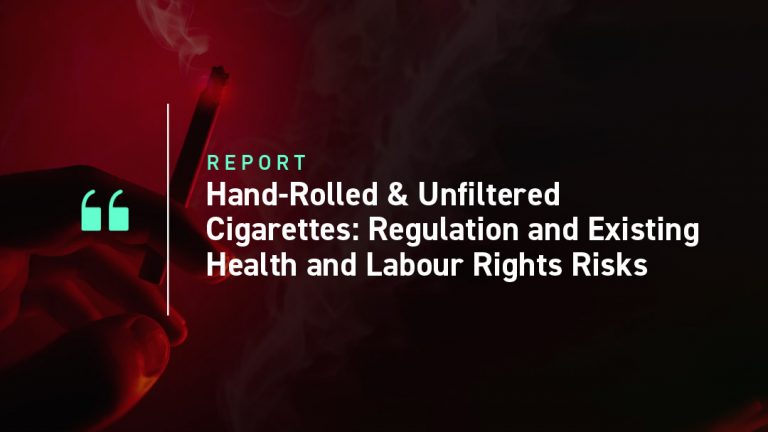Below is an excerpt from ISS-Corporate’s recently released article “Responsible Marketing: Trends, Best Practices, and Why Ethical Promotion Matters.” The full article is available on the ISS-Corporate online library.
Responsible marketing– ensuring marketing activities are reliable and truthful – is a growing area of scrutiny from regulators and investors alike. Protecting consumers and building trust are foundational, but expectations for responsible marketing now extend to demonstrably principled and transparent practices and disclosures.
A Growing Business Imperative
This increased focus is reflected in evolving legal frameworks. Jurisdictions like Canada and the United States have existing regulations addressing responsible marketing, particularly concerning the protection of children, the accuracy of environmental and health claims, and data privacy. The European Union’s European Sustainability Reporting Standards (ESRS) formally recognize responsible marketing as a potentially material topic within “ESRS S4 – Consumers and End-Users,” signaling its growing importance for companies operating in or reporting to the EU.
Investors are also paying attention. The Sustainability Accounting Standards Board (SASB) identifies responsible marketing practices as a potentially material sub-topic within “Selling Practices & Product Labelling.” The SASB standards flag this issue as potentially material for multiple industries, including Commercial Banks, Alcoholic Beverages, and Healthcare Delivery, indicating investor concern around risks associated with misleading or unethical marketing in these sectors. This recognition demonstrates that responsible marketing is increasingly viewed as a key indicator of a company’s broader sustainability performance and risk management.
Trends in Disclosures and Controversies
ISS-Corporate recently analyzed public disclosures regarding responsible marketing practices across a range of industries. As the graph below illustrates, the percentage of companies openly addressing responsible marketing policies varies significantly, particularly within sectors where this issue is most critical. Our analysis focused on 3,342 companies – those included in the ISS ESG Corporate Rating assessment for responsible marketing, drawn from our broader coverage of over 8,100 companies globally. We identified the ten industry groups with the largest number of companies assessed on this indicator and ranked them by the proportion demonstrating some level of disclosure.
The resulting rankings, visualized in the graph below, reveal a clear divergence in disclosure rates. Industries like Pharmaceuticals, Healthcare Equipment, and Banks demonstrate the strongest commitment to transparency, with the highest percentage of companies disclosing some form of responsible marketing policy. This pattern suggests increasing awareness and responsiveness to both investor scrutiny and emerging regulatory expectations in these key sectors.

By:
Kelsey Murlless, Analyst, Sustainability Advisory, ISS-Corporate
Jessica Lobo, Associate, Sustainability Advisory, ISS-Corporate




